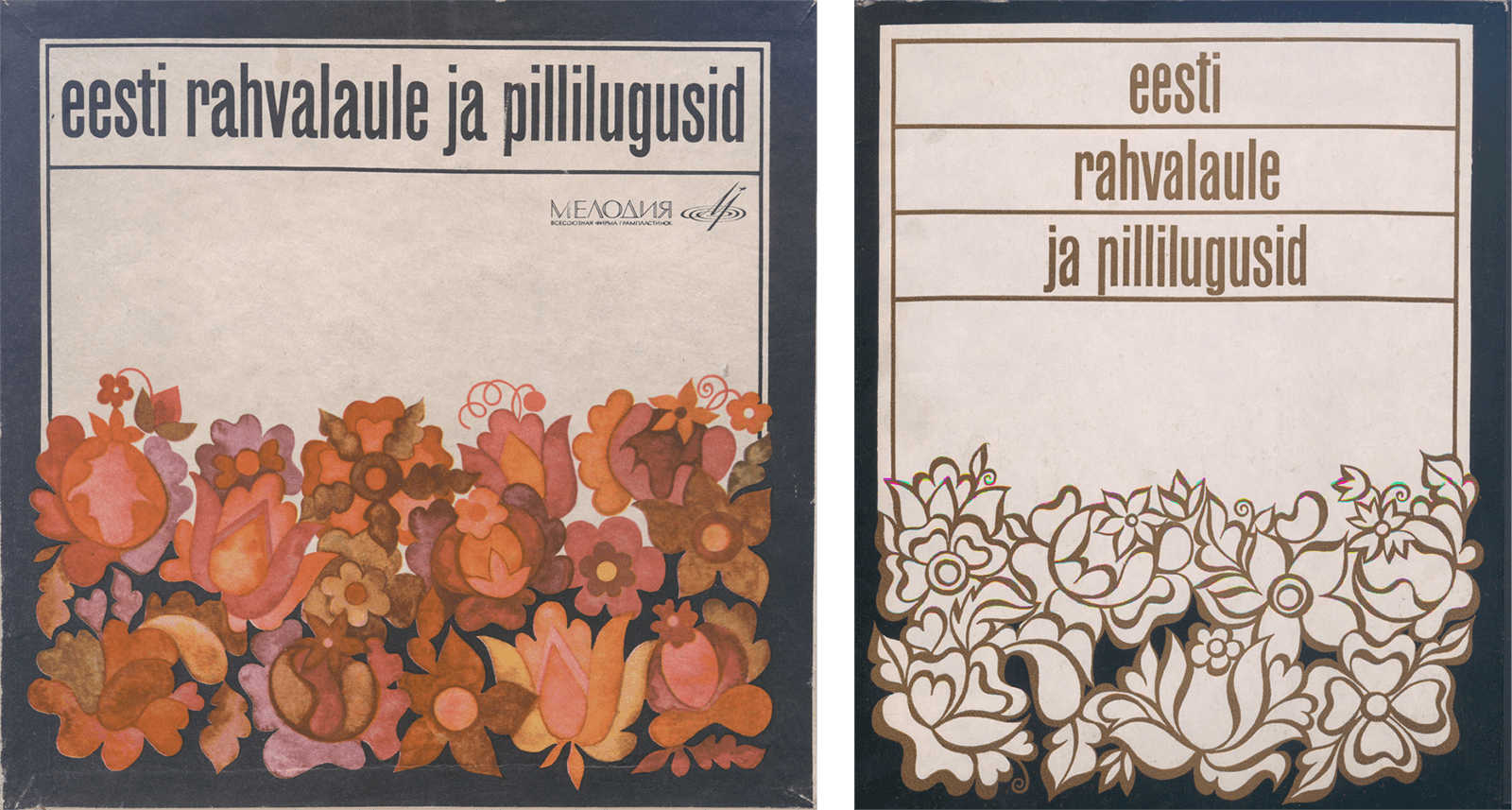Recordings from the Estonian Folklore Archives 3
Foreword
Anthology of Estonian Traditional Music provides an overview of the earlier Estonian folk music tradition. This is the third edition of the anthology. The first, original edition, Estonian Folk Songs and Instrumental Music, compiled by Herbert and Erna Tampere and Ottilie Kõiva, was published in 1970 as a five-record album set with an accompanying booklet of the song texts. In 2003, an enlarged edition Anthology of Estonian Traditional Music was published on CDs (as Volume 3 of the series Recordings from the Estonian Folklore Archives), with added parallel English translation of the texts. The current online edition is based on the 2003 CD edition.

The edited anthology Estonian Folk Songs and Instrumental Music, compiled by Herbert and Erna Tampere and Ottilie Kõiva, was published in 1970.
The anthology includes 115 archival recordings from the years 1912–1966. The main part of the anthology consists of examples of regilaul, Estonian oral singing tradition: work, calendar and family ritual songs, children’s and game songs, lyrical songs and ballads. Instrumental music is represented with all the main traditional instruments and ensembles, ranging from herders' horns to village bands.
The songs have been categorised according to performance situations or themes. The titles used for the songs are those designating song types that have been agreed upon by song researchers. This enables title-based search of the song texts from the Database of Estonian Regilaul and the online publication Estonian Folk Songs. Anthology. On the page of each song or instrumental piece there is a recording of the piece and abbreviated notation; the songs also have lyrics with added translation into English. A comment on the performance of the song has been added to game songs and some other songs. There is a reference at the bottom of the page about each performer, his or her home place, the collector and time of collection, and also the archival reference of the original recording in the Estonian Folklore Archives. Since the numbering of the songs and instrumental pieces in the online edition differs from that in earlier editions, the piece’s number in the 1970 and 2003 versions is given at the end of the reference.
The online anthology introduces all the singers and musicians who have performed the music pieces for recording. The overview of the singers and musicians has been arranged according to historical Estonian parishes and counties, the map of which is the last item in the list of contents. The general overview is followed by individual pages about each performer, arranged alphabetically by surname. Each page features a photograph of the performer and an introductory paragraph taken from the general overview of singers and musicians, followed by a list of pieces by this particular performer.
The introduction to the original 1970 edition has been republished unchanged. Written by Herbert Tampere, it provides a brief introduction of Estonian folklore collections and an overview of the Estonian historical music tradition – regilaul, musical instruments, and instrumental music.

The enlarged CD-edition Anthology of Estonian Traditional Music, published in 2003.
The introduction to the 2003 anthology (the CD edition) opens with providing a general context of compiling the original 1970 edition and of compilers of the first anthology – Herbert and Erna Tampere, and Ottilie Kõiva. This is followed by a closer introduction of changes made to the 2003 edition – an overview of singers and musicians, the transcription principles of the linguistic nuances of the song texts, and notations of the tunes. The 2003 introduction republished in the current online edition also corresponds to the original one, but the numbering of the songs and instrumental pieces has been changed to comply with the numbering in this edition.
The online edition corrects some mistakes found in the earlier editions and specifies the published information. We wish to thank all who have helped us with their keen perception and knowledge. We extend our heartfelt thanks to the compilers and editors of the edition, the teams of this and earlier editions, and all the kind helpers and generous sponsors. Our deepest gratitude goes out to the leading creators of Estonian oral culture, the singers and musicians of the past, also the tireless folklore collectors for their love and passion for their work, which has given us the gift of a unique collection of music.
23 April 2016
Risto Järv
Janika Oras
Kadi Sarv
